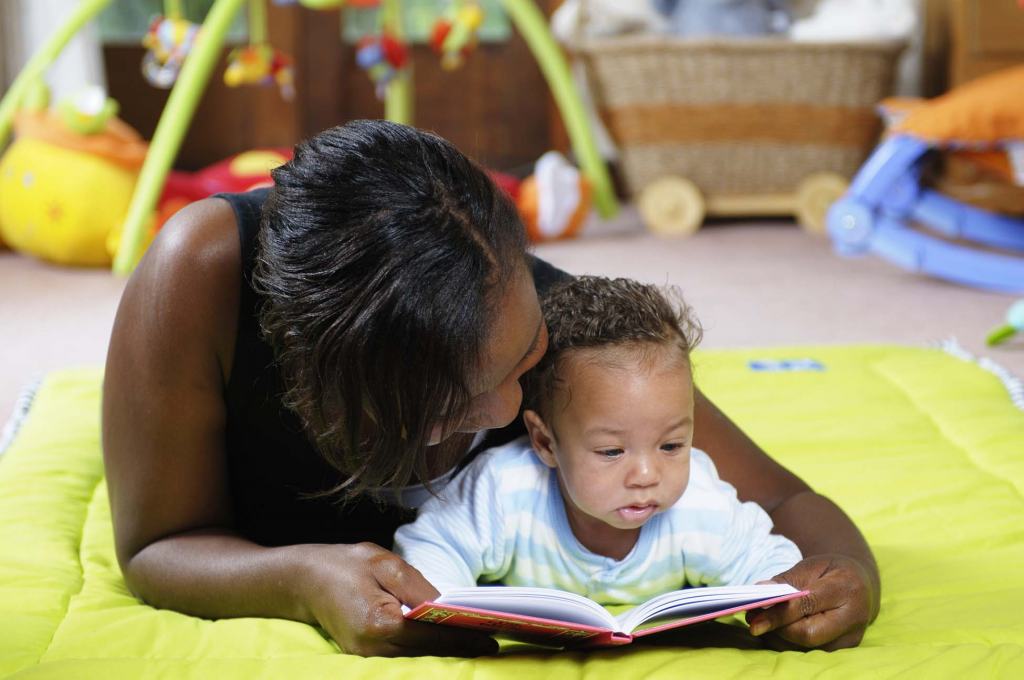
Talk. Read. Play. Count. Sing.
Talk.
Talking directly with your baby as soon as they’re born helps build a stronger brain from birth. People do not know that talking to a baby actually creates millions and even billions of neuron connections in a child’s brain in the first years of life.
Babies love being spoken to long before they understand a single word. Their brains light up when words are spoken directly to them. Neuron connections are built and strengthened just by talking.
So talk to your baby. Start day one. Start week one. Start month one. Then keep doing it every single day.
Those words build stronger brains and they also create a sense of security, connection and family identity for each child. The talks don’t need to be complex and they do not need to be scripted. They just need to be frequent and they need to be friendly. Loving is even better than friendly.
So please talk to your child. The simplest chats with your baby can do amazing things for their brains as they grow.
- Point at objects and describe the shapes to your baby
- Describe funny images you see in clouds
- When you’re out for a walk, describe the things you come in contact with like trees, animals, people, cars, signs.
- Help them understand colors early on by pointing out things that are red, or blue, and green and so on.
- Describe smells when you’re cooking, playing on the grass, at bathtime, etc.
- Make connections by describing sounds your baby hears like firetrucks, splashing water, barking dogs.
Every opportunity you take to describe things your baby experiences every day helps your baby’s brain to grow stronger and stronger.
Read.
Reading helps your baby develop her vocabulary as soon as she is born. Your baby’s brain is making associations with the words you read and the pictures you describe every time you read to her. To help her brain grow stronger, find books she really likes and read them over and over to give her a sense of continuity and connectivity between books and the meaning of words.
- Choose books with lots of pictures.
- Ask your baby questions as you read, then tell them what they are seeing.
- Find books that also have different textures to feel and describe as you read… like fuzzy, soft, prickly, squishy.
- Books that include counting are super important to help your baby’s brain early on.
- Count often with your baby. Count things in the kitchen and the crib and teach basic numbers every day through books and also just through talking about numbers.
- Your local library has an entire section devoted to books for children of every age. You can check them out and return when you’re ready for a new book to discover.
- Your local community organizers routinely have book donation drives. These are great places to get new books and donate books you no longer need so a new family can share those same stories with their children. Check with your local church, parks and rec department or library to learn when these take place.
Play.
Playtime is the best time for your baby’s brain to be learning. When you play with your baby, his brain is making millions of connections that help to make it grow stronger every day.
Toys do not need to be complex, but they do need to be available. Have simple toys always available, and your child will find interesting things to do with some very simple objects that will strengthen her brain.
- If you can, it can be good to also find toys that make noises, light up or need to be pieced together to stimulate your baby’s brain.
- Puzzles help your baby learn shapes and make associations with how they fit together.
- Building blocks and erector sets teach your baby’s brain to make connections with different shapes and sizes.
Count.
Counting is one of the most important things you can do every day to help make your baby’s brain even stronger. Find opportunities to count things often. Children love to count things once they understand some basic counts. Children who don’t have anyone counting with them in those first years tend to fall behind in math abilities when they get to school and have a harder time learning those areas. So count early and often.
- When you’re at the grocery store, point to and count how many items you have in your cart.
- If you’re at the park, you can count all sorts of things like how many kids are playing. How many cars are in the parking lot. How many dogs are being walked.
Sing.
Babies also strengthen their brains, get great pleasure, and learn important skills when you sing to them and sing with them. Taking the time to sing with your baby helps your baby’s brain make millions of new connections to sound.
- Singing favorite lullaby’s or songs everyday helps your baby’s brain learn repetition.
- Listening to your baby sing in their own way encourages strong emotional connections.
Talk, Read, Play, Count, and Sing and your child will have billions of neuron connections, will find school easier and more pleasant, and will find learning to be FUN instead of hard. You can do each of those things in any setting. The point is to help each child by doing them for each child.
Enjoy doing it. Your child will enjoy doing it with you.
- Talk
- Read
- Play
- Count
- Sing
- The Building Blocks for Your Baby’s Brain